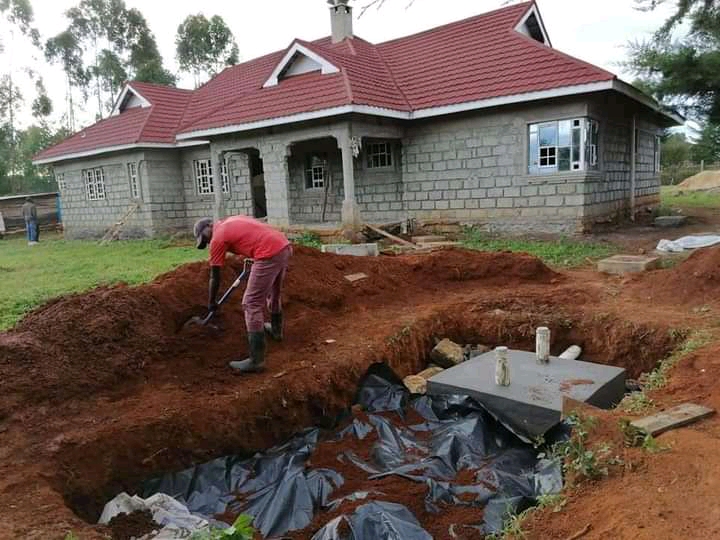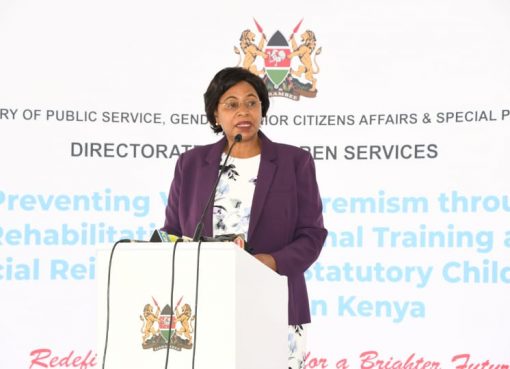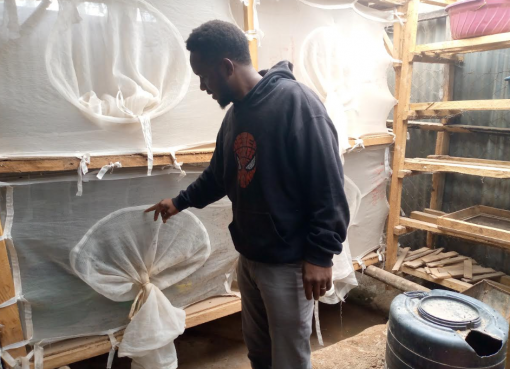In 2006, the Ministry of Science and Technology, led by Dr. Noah Wekesa, developed a biotechnology policy as a strategy to improve the quality of human welfare, maximize productivity in agriculture and protect the environment.
In Meru County, Alex Mutethia, a plumber in Kaaga area, is one of the people helping in the realization of a bio-economy in the region through installing bio-digester septic tanks in residential homes.
Bio-digester septic tank is a technology based on the bio-degrading processes that break down organic waste materials into carbon dioxide, methane, and water. The bacteria in the tank feed on organic waste water and as a result, waste turns into gas and water.
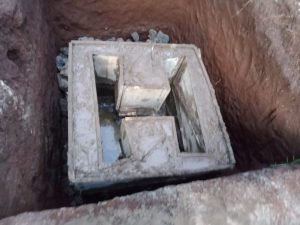
According to Mr Mutethia, the bio-digester is cost effective and time-saving compared to the traditional septic tanks.
“The difference between bio-digester septic tanks and traditional tanks is that it takes only three to four days to fix a bio-digester at a cost of Sh80, 000 in contrast to traditional septic tanks that take almost a month and cost not less than Sh300,000, without putting into account the maintenance cost,” Mutethia said.
Mr Mutethia also notes that bio-digesters are environment friendly, due to their low emissions of greenhouse gases (GHG) and also saves space as the area of construction can still be used for small-scale farming besides ensuring a low risk of children falling into the tanks.
Since 2016, Mr Mutethia says only ten clients have had the installations made in their homes which he attributes to lack of awareness and inadequate sensitization of the bio-digesters to the public.
“Many people are yet to fully understand how bio-digester works because in most cases I do the pitching to the homeowners. However, from 2020 many people have begun to embrace the technology,” he said.
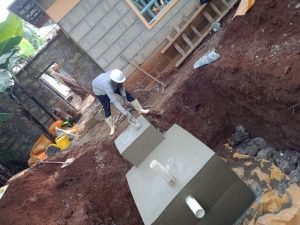
Dorcas Mwirigi, one of Mutethia’s clients appreciates the new technology due to its cost-effectiveness.
“When I constructed my septic tank in 1996, I spent 300,000 shillings and it took more than three weeks but with a bio-digester it only takes three to four days,” Ms Mwirigi said.
Biotechnology strategy was and is still the futuristic plan that aims to create a pathway to a green economy and a shift away from the current economic growth trajectory.
With already a workforce of four, Mr Mutethia is optimistic that the new technology will be embraced fully in the construction industry while at the same time creating employment opportunities.
By Brendah Gakii and Erick Otieno


